Our Staff
Dr. Adeyemi Laosebikan
Bio to come.
Kristen Crockett, Clerical Assistant, Division of Social Accountability
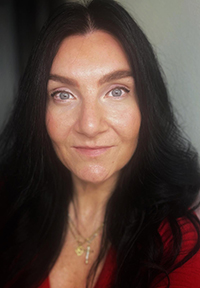
Kristen Crockett was born and raised in Saskatchewan with a heart for big city life and travel. She brings over 25 years of experience in medical/legal/general administrative support, with 15 of those years being in emergency services. Kristen is passionate about volunteering and leading community initiatives to bring aid to those in need. Empathy and kindness are traits she encourages in her children and those around her.
Lise LeBlanc, Administrative Coordinator

Lise LeBlanc is a settler born and raised in small-town Saskatchewan. She has spent the past seven years working alongside physicians across the province and is happy to be back at the University of Saskatchewan. A passionate community advocate, Lise devotes much of her time to volunteering and organizing food and financial support for those in need. She is deeply committed to social accountability and cares deeply about the mission of OVDIH. As a parent of two teenagers, Lise does her best to humbly raise conscientious and engaged citizens to contribute meaningfully to the world.
Michelle Koehn - Executive Assistant
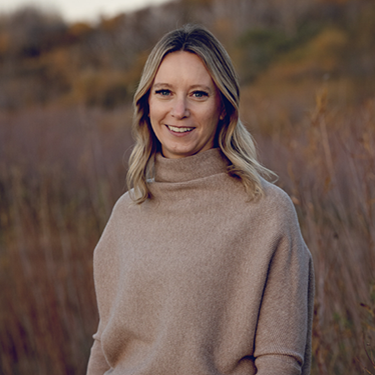
Michelle was born in British Columbia but raised in Saskatoon since she was an infant. She brings fifteen years of experience working in health care administration in Saskatchewan and ten years working within the university, bringing a wealth of experience into postgraduate and undergraduate medical education program support, and complex problem-solving acumen and strategic leadership to her role and is a registered social worker. She is passionate about her role which will allow her to grow both personally and professionally, apply her knowledge and passion to support meaningful initiatives and make a positive impact within the community.
Natalya Mason - Equity, Diversity and Inclusion Specialist
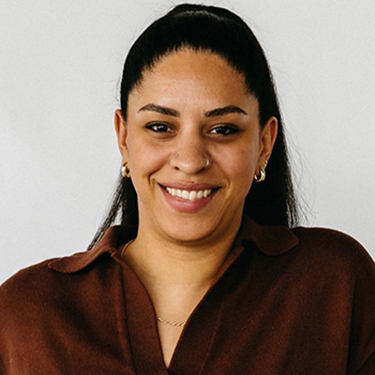
Natalya Mason is the EDI Specialist. She is a registered social worker who was born and raised in Saskatoon, SK. Natalya is a Black first-generation Canadian, and a settler on Treaty Six Territory. She has a background in psychology and social work, and holds an M.A. in Women’s, Gender, and Sexualities Studies. Natalya is dedicated to social justice, anti-oppressive education, and reproductive rights. She is a queer feminist living in contradiction, committed to continuous learning and unlearning.
Bill Ng, Finance and Administration Manager
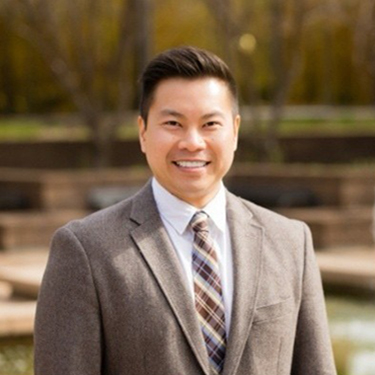
Bill Ng was born and raised in Saskatchewan. He is a University of Saskatchewan alumni, having completed his degree in accounting. He obtained his Chartered Professional Accountant designation in 2009 and has been working in the area of finance/accounting since 2006. Bill has previously served as a board member with the Physiotherapy Education Accreditation of Canada from 2012-2024 as the Director of Finance. He brings strong leadership skills, a great deal of experience with financial reporting, budgeting, forecasting, and project management, with effective analytical and critical thinking skills. Bill has also previously held a financial officer position within the College of Medicine in the Dean’s office at the University of Saskatchewan.
Joelle Schaefer - Community Engagement Specialist
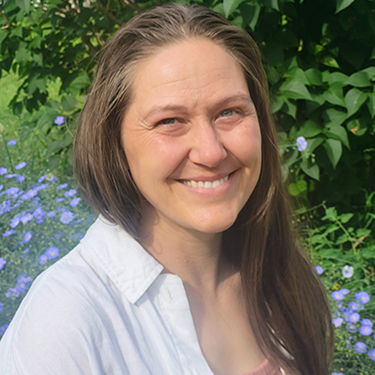
Joelle Schaefer is the Community Engagement Specialist. Living on Treaty 6 Territory and Homeland of the Métis, Joelle has called Saskatoon home for 20 years. She has experience in community-based programming and population health research. Joelle holds a BSc. in Kinesiology and a Ph.D. in Community and Population Health Sciences. She is passionate about health equity and addressing needs through community-driven initiatives. Joelle is committed to lifelong learning and unlearning in her daily life to support this work. As a parent, Joelle strives to teach her children kindness and compassion every day.
Our Committees
Social Accountability Committee
The purpose of the Social Accountability Committee is to advocate for and promote social accountability within the College of Medicine.
This includes work to:
- direct the college’s education, research, and service activities towards unmet health needs
- advise on and support the development and implementation of curriculum on priority health needs and the professional responsibility to help address these needs
- support and encourage students and faculty in understanding and applying social accountability in their education, research, and service undertakings
- support the participation and engagement of communities in the initiatives of the college in a manner that is respectful and mutually beneficial
- promote strategies to ensure equitable access to the educational programs of the college
- share information and obtain feedback about the college’s social accountability initiatives through communication with key stakeholders
Membership to the Social Accountability Committee is defined by the Faculty Council Bylaws and includes faculty, student, resident, and staff members from within the College of Medicine.
If you are interested in participating on the committee, please contact us at social.accountability@usask.ca.
Equity, Division, and Inclusion Committee
The Equity Diversity and Inclusion (EDI) Committee is a group of interested College of Medicine members – faculty, staff, and learners – representing diverse backgrounds and experiences, willing to work together in supporting efforts to advance equity, diversity, and inclusion.
This committee serves an advisory role to the Vice-Dean Indigenous Health and is responsible to:
- inform the DSA in the development and monitoring of EDI initiatives within the College of Medicine
- identify gaps, suggest initiatives, and encourage and champion the achievement of EDI goals in the college
- increase awareness of EDI goals among faculty, staff, students, and residents
- review college-level metrics annually and identify areas of concern and recommended actions
- host targeted discussions and educational programming on EDI issues that affect the college
- act as a liaison between other groups working in similar areas in the college and on campus, to ensure collaboration and alignment (not duplication)
The Committee strives to achieve diverse membership and will consider this in appointment/invitation of committee members. Considerations will include representation from diverse demographic groups, range of students by year and type of learner, range of faculty by type of academic appointment, geographic location (rural/remote representation), as well as diverse representation of gender and sexual diversity, BIPOC (Black, Indigenous, and People of Color), and other equity seeking groups.
Membership to the EDI Committee is reviewed annually and opened to interested parties. If you are interested in participating on the committee, please contact us at social.accountability@usask.ca.
Anti-Racist Transformation in Medical Education
What is Anti-Racist Transformation in Medical Education (ART in Med Ed)?
In 2021, the University of Saskatchewan College of Medicine was selected from more 60 competitive applicants from across the U.S. and Canada to participate in the Anti-Racist Transformation in Medical Education (ART in Med Ed) initiative, led by the Icahn School of Medicine at Mount Sinai. The University of Saskatchewan has the distinct honour of being the only Canadian school selected, participating alongside prestigious institutions such as Columbia University and University of California, Los Angeles.
ART in Med is a three-year initiative which aims to dismantle institutional racism in medical education. Our cohort — which is made up of 15 faculty, staff and students committed to anti-racist transformation at the U of S — has been meeting for a year to begin the change management initiative. We are ready to move into the next phase, where members of the College of Medicine community can begin to contribute to this transformative change.
Who does this impact?
ART in Med Ed is a college-wide initiative that will involve all areas of work and study, including but not limited to staff, students, faculty, departments (i.e. biomedical science), and affiliated schools (i.e. School of Rehabilitation Science). Participation in this process is open to any and all members of the College of Medicine that would like to champion anti-racism and anti-oppression in our college – staff of all levels and unions, faculty, UGME, PGME and grad students are encouraged to get involved.
Where is the college in the process?
We are now in Phase 3 of the initiative, where we will be building our Guiding Coalition. The Guiding Coalition will be made up of faculty, staff, residents, fellows, postdocs and students, organized into functional areas or spheres, who will be responsible for determining priorities for their sphere and leading anti-racist systems change. The spheres will oversee the change projects or actions; identify options and make decisions about where energy and resources should be focused; determine how to hold people accountable and manage resistance; as well as muster support, buy-in and resources from stakeholders and other parts of our institution.
Spheres
- Learners – Learner experience, culture and climate from an anti-racist perspective; advising practices that actively address racism, promote equity, and improve trust between students and student affairs; address issues that underrepresented learners may face.
- Faculty and Staff – Experience, culture and climate from an anti-racist perspective. Including recruitment, retention, and promotion that advances diversity and equity.
- Curriculum – Anti-racist pedagogy, faculty development on teaching anti-racist medicine and white supremacy, and curricular initiatives in curriculum throughout UGME, PGME (clinical settings) Grad studies and SRS.
- Admissions – Anti-racist admissions practices, including specific streams and recruitment efforts.
- Research – For those interested in research from an anti-racist lens, health equity research, anti-racist medicine, anti-racist pedagogy (includes postdocs).
Each sphere will consist of 7–10 members, with two designated co-leads.
Membership terms – One-year commitment required; members are encouraged to serve more than one year.
What are the expectations for Guiding Coalition members?
- Use their day-to-day function/role and relevant stakeholder groups to increase awareness of the change initiative and adopt change management methodology.
- Contribute energy and skills by collaborating (attending monthly meetings and working between meetings) on change projects or actions that will accelerate change in a specific sphere.
- Increase personal awareness, knowledge and ability in order to address racism in systemic policies and practices that have generated an imbalance in power and privilege in the medical learning and work environment.
What is the membership criteria?
- Value diversity comprehensively, including race, ethnicity, gender, sexual orientation, ability and disability, age, and other factors that shape creative perspective and professional experience.
- Demonstrate a high commitment to ending racism.
- Be open-minded and willing to approach problems with the awareness that one’s own perspective is not always the only valid perspective.
- Desire to transform “why we can’t” to “how we can.”
- Affect change through actions big and small.
- Motivation to lead from where you sit.
Social Justice Community Council
Diverse participation from across the province will be crucial in shaping an inclusive and equitable future for all. In enduring commitment to authentic community engagement and social justice, the Social Justice Community Council (SJCC) represents a diversity of communities in Saskatchewan with a mandate to advise the Division of Social Accountability (DSA) and the Office of the Vice Dean Indigenous Health (OVDIH). The Council helps to make sure that marginalized and underserved voices are included, and amplified, in ongoing social accountability and EDI efforts in the College.
Current Membership
<Photos and bios>

